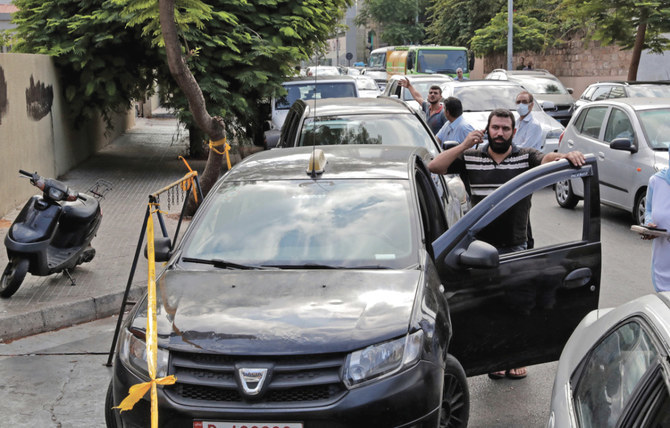Lebanese expats are angry with the government in Beirut, fearing they could lose touch with their families if the Internet goes down because of the country’s ongoing energy and financial problems.
The director general of telecoms company Ogero, Imad Kreidieh, warned on Thursday that Lebanon’s Internet service could go down within 10 days due to a lack of US dollars and insufficient quantities of the diesel needed to keep broadcast stations and backup generators operating.
Electricite du Liban has only been able to secure power for a few hours a day for institutions and households since June, especially after a government subsidy on diesel was lifted, and fuel prices have continued to increase.
Fuel is being made available only in dollars and at a black market rate. Kreidieh said that Ogero’s budget was in Lebanese pounds, which has been devaluing against the dollar, leaving the company unable to obtain the currency needed to purchase the required quantities of diesel.
The situation has led Lebanese expats in the Gulf and Europe to slam Beirut.
UAE-based corporate banker Rana Arbid said that if the Internet collapsed, then so would she.
She accused Beirut of being “irresponsible and useless” and blamed the ruling elite for jeopardizing people’s lives and the means of communication.
“No Internet means no channels that connect people together, especially for us Lebanese living abroad,” she told Arab News.
“Internet and mobile applications are our tools and means to communicate with our relatives and friends.”
Najib Youssef, a Germany-based sales manager, blamed an “unproductive government and administration” for disconnecting the diaspora from their families.
“This government is just like previous ones, it is an infertile cabinet. By far, it has failed at administering the country. It has participated in killing all service sectors including telecommunications. If this happens, and I guess it will, that means killing us (expats) emotionally and mentally as the Internet is the only means to communicate with people inside,” said Youssef, who feared his two children would miss out on video chats with their grandparents every weekend.
Barcelona-based photographer Moe Shamseddine described the current situation as “shameful” and also accused authorities of being irresponsible.
“If the Internet collapses, this will add up to their long list of failures,” he told Arab News. “Personally, I’m truly scared of not being able to communicate with my 78-year-old mother.”
He stressed that most Lebanese people living in Europe could not afford to make international calls if the Internet went down as they needed to communicate using social media and messaging apps.
“I am so upset and sad. Like most Lebanese living in the diaspora, we cannot wait for the 2022 elections to vote for new lawmakers, who are capable and won’t make us face such a communication crisis that would disconnect us from our families,” he added.
Nada Khalil, who has been based in Istanbul since Lebanon’s economic decline started in 2020, said that those in power were not rulers. “They are a bunch of greedy thieves dressed up in suits and killing us slowly.”
She said they had created a telecommunication crisis with their “ignorance, failure and incompatibility.”
“This constant warning about Internet collapse has been ongoing and they always blame it on fuel and dollar shortage. It’s nothing more than a cheap form of blackmail to cover up their bid to increase tariffs like in most productive sectors,” added Khalil, who works in content development.
“If it happens, it would be such a disaster if Lebanon gets completely isolated.”
Saudi Arabia-based Bassam Al-Deek, a senior business professional, said an Internet collapse would be a continuation of isolating Lebanon from its surroundings.
“As if what has been happening isn’t enough, now comes this fuel and dollar shortage issue to impede the telecommunication system and deprive us from communicating with our families at home,” he added.
Frustrated and angered by what she described as the “stupid Lebanese administration,” Doha-based Shireen Ibrahim told Arab News: “This is so mean and hurtful. Imagine not being able to communicate with your parents because a bunch of ignorant morons cannot handle a country! How do you expect them to handle the telecom industry?”
Ibrahim believed that nothing would start to change in Lebanon, except after voters got lawmakers out of the system in the 2022 elections.
Communications Minister Johnny Korm told MTV news on Friday that the crisis was being rectified and that he was working on securing sufficient funding to buy diesel.
He promised that Lebanon would not witness the complete collapse of the Internet, but warned there could be “intermittent disruptions” in some parts of the country.
He said the secured quantities of diesel were enough for the next 20 days.

